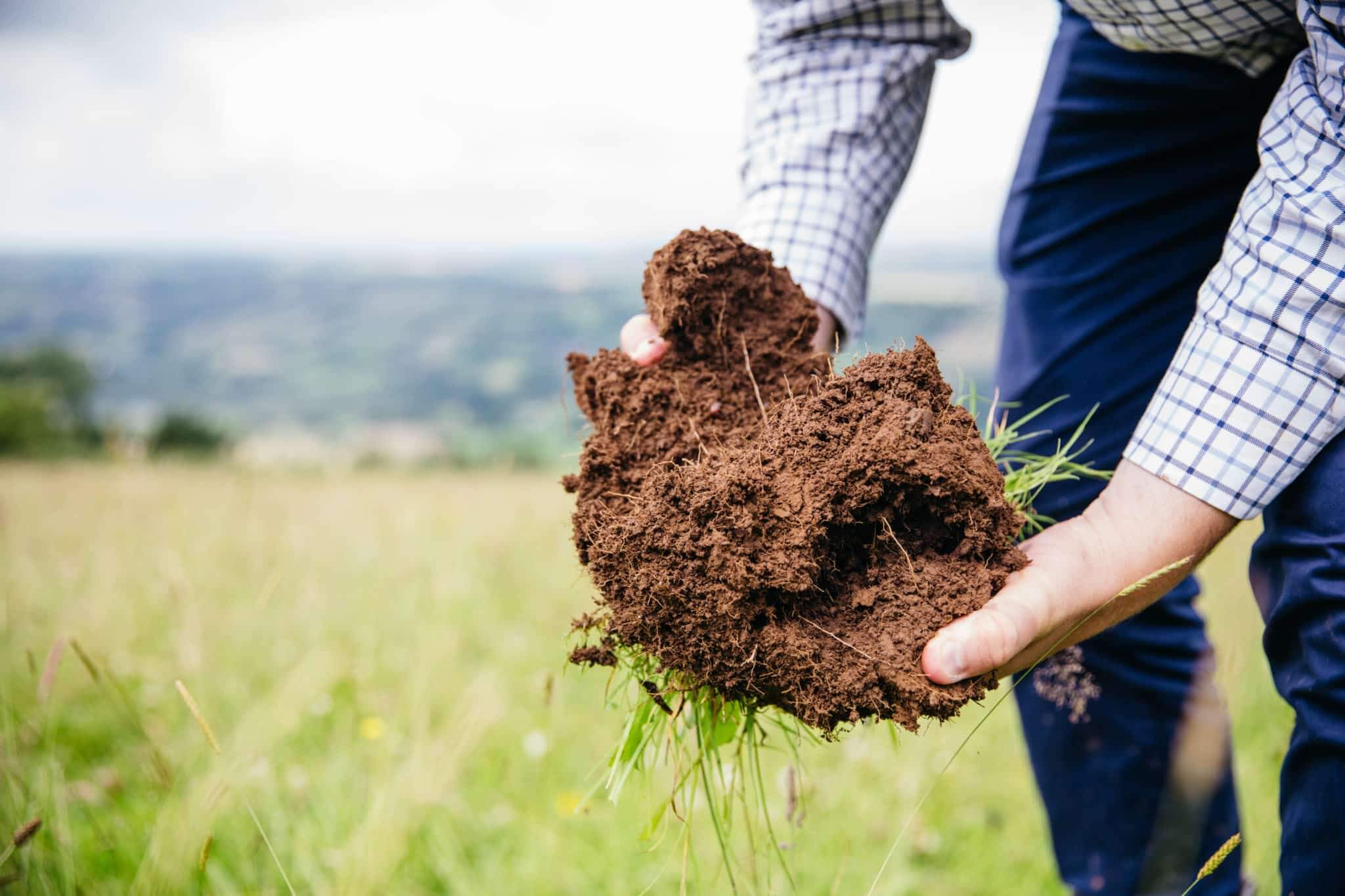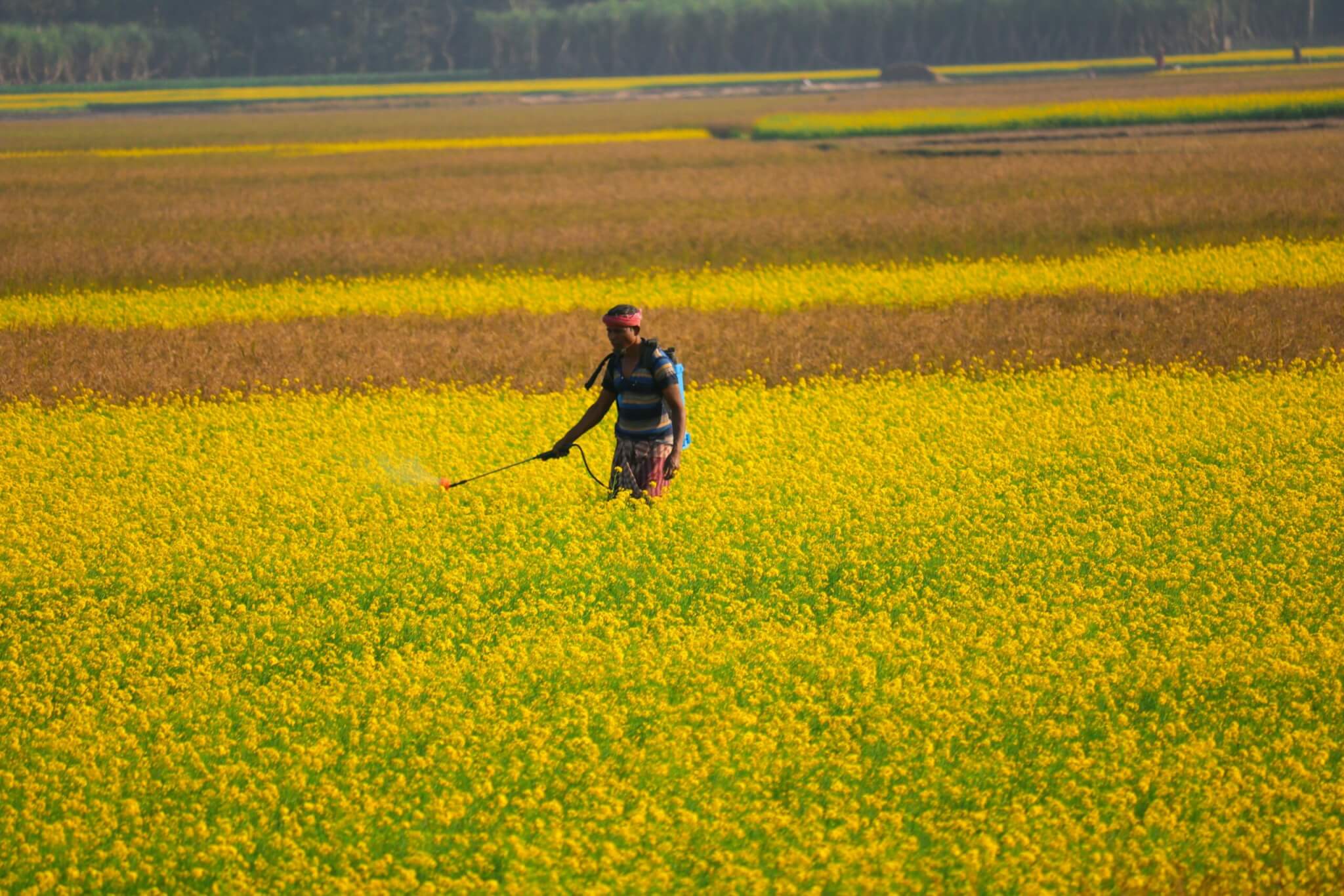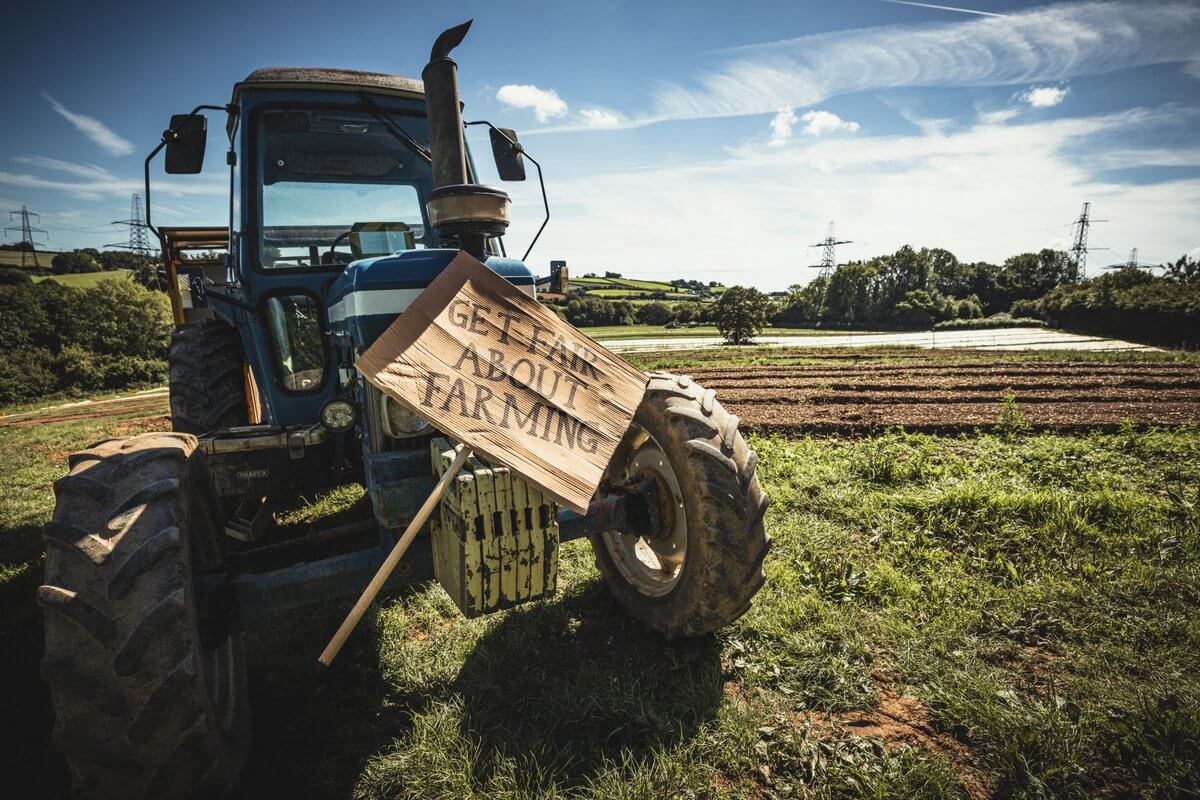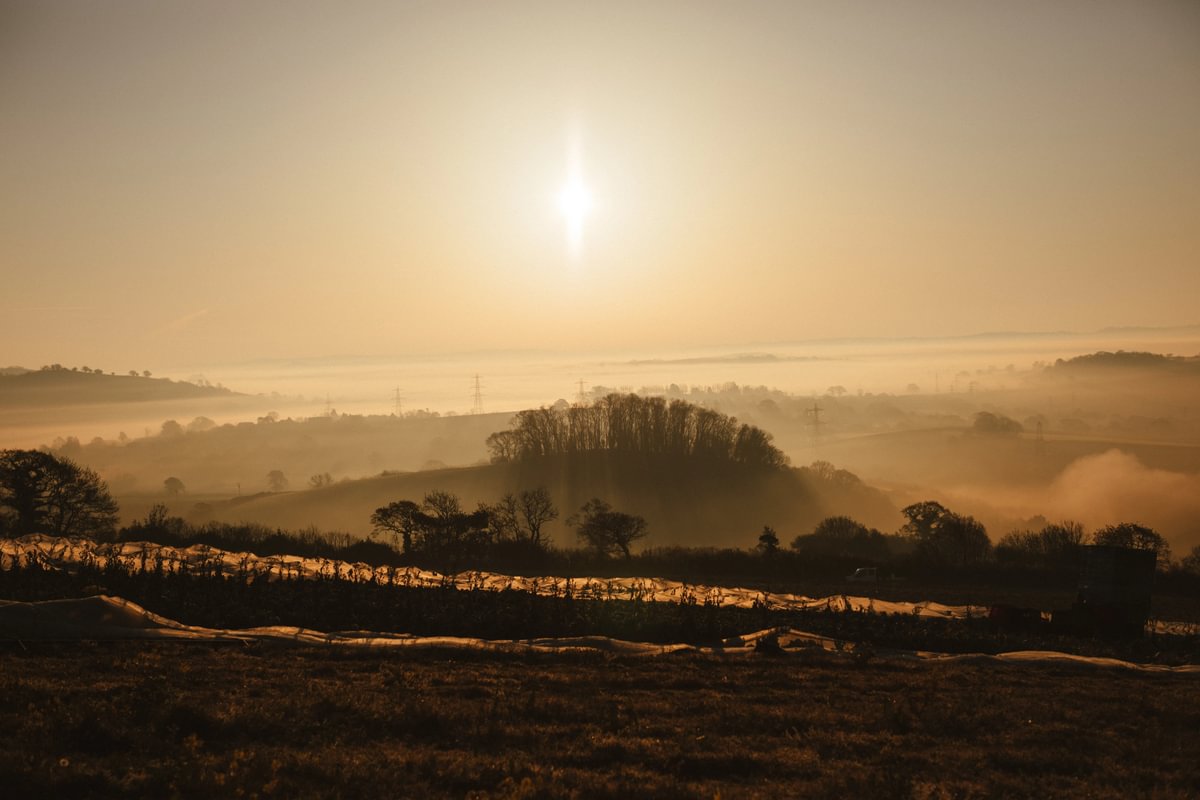Restoring soil is a huge opportunity to tackle climate change on farms, say regenerative organic farmers issuing a rallying cry for others to join them and move away from harmful practices.
Tim Mead, organic farmer and founder of dairy brand Yeo Valley, said farmers “need to decide if they want to be in the tribe that keeps depleting the world’s soil, or part of the tribe which is working towards repairing, restoring and weaponise the soil to lock in carbon and make a real difference in the war against climate change.”
Yeo Valley has invested £2 million in working with experts in practical field trials to measure soil carbon. This follows a successful five-year soil carbon testing pilot at the Yeo Valley family farm in Somerset, where data showed that by using regenerative organic methods (combining organic with soil-centric regenerative methods), the soil carbon stored is equivalent to 150 years’ worth of the farm’s emissions.
UK farmers can already sell their soil carbon to trade carbon offsets, but there are fears that the process is unstandardised and unregulated, and could leave some farmers at a disadvantage as a result.
“We want to prove that organic soil presents a big opportunity in helping to combat the effects of climate change by extending testing across our organic supplier farms, as well as working with other like-minded businesses like Riverford, Weleda and Wildfarmed, to support them to make a positive impact on locking-in carbon,” said Mead, speaking to coincide with World Soil Day.
Regenerative organic farming avoids chemicals, and instead uses integrated farming where animals are grazed alongside mixed crops, fruit, nuts, herbal leys, grass and trees, to increase biodiversity and establish living roots in the soil, while producing food.
“Soil being properly loved and managed has such a huge opportunity in the fight against climate change,” said Ben Thomas, a regenerative farmer on Bodmin moor in Cornwall.
“Livestock have an integral role to play in that, too. Deep-rooting pastures being mobbed by cattle or sheep, returning organic matter to the soil as they pass, can really drive carbon down into depths of topsoil where organic matter percentages are a lot lower than the top few inches of soil.
“As well as sequestering carbon, soil is so powerful when it comes to water. With the extremes of climate change, soil will capture more water during intense heavy rain and then hold onto it better for the drought periods we are seeing,” he added.
While regenerative is not a certified term and covers a range of sustainable practices, organic farmers have to be certified. Organic regenerative farming represents farmers who farm without chemicals, certified as organic, but also prioritise soil health by minimising ploughing or planting trees, for example. Organic farmers who are not regenerative could still damage the soil by excess ploughing.
“The amount that we don’t know about soil’s potential is huge, but it is clear that the runway of soil will come to an end unless we go back to regenerative organic farming,” said Mead.
Get dirty for soil
Elsewhere, a campaign launched today by the Soil Association and backed by celebrities including Deborah Meaden is calling for people to ‘get dirty for soil’.
People are being asked to take a phone of themselves holding up a dirty hand or two, and share it on their social media channels with the message: “I’m getting dirty for nature and climate this #WorldSoilDay because soil: stores carbon, protects us from droughts and floods, and helps us grow healthy food.”
Videos from Meaden, and seven-year-old poet and conservationist Aneeshwar Kunchala, a finalist on Britain’s Got Talent, have both shared their own videos explaining
“We need to keep the pressure on the world’s politicians to act now to protect soil, restore biodiversity and tackle climate change. I would urge business leaders to listen to their consumers who are so alive to the challenges we face today to secure the planet for future generations,” Meaden.
Kunchala said: “We want everyone to understand how important soil is for our survival and for nature and to learn what we can all do to help save soil. That is why we want everyone get their hands dirty, take a selfie photo or video and share it on their social media channels. And then ask your friends to do the same.”
More on soil













0 Comments